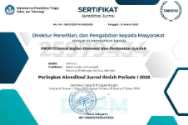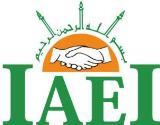THE ROLE OF BANK SYARIAH INDONESIAN (BSI) IN IMPROVING THE QUALITY OF LIFE OF FARMERS IN TOLOWATA VILLAGE, AMBALAWI DISTRICT, BIMA REGENCY
(1) * Nuralfulailah Nuralfulailah
 (Universitas Muhammadiyah Bima)
(Universitas Muhammadiyah Bima) Indonesia
(2) Rafiuddin Rafiuddin (Universitas Muhammadiyah Bima)
Indonesia
(3) Syarif Hidayatullah (Universitas Muhammadiyah Bima)
Indonesia
(*) Corresponding Author
AbstractThis study aims to examine the role of Bank Syariah Indonesia (BSI) in improving the quality of life of farmers in Tolowata Village, Ambalawi District, Bima Regency. The background of this study is based on the fact that the majority of the village community depends on the agricultural sector, but faces various obstacles such as limited access to capital, technology, and financial literacy. The presence of BSI as a sharia-based financial institution is a potential solution in empowering the economy of farmers through interest-free financing schemes, such as mudharabah, musyarakah, and qardhul hasan. This study uses a descriptive method with a qualitative approach. Data collection techniques are carried out through in-depth interviews, non-participatory observation, and documentation studies, with data validation through source and method triangulation techniques. The main informants consist of farmers receiving financing, BSI employees, and local community leaders. Data are analyzed through the stages of reduction, presentation, and drawing conclusions and verification. The results of the study show that BSI not only provides fair and sharia-compliant financing access, but also provides financial training, technical assistance, and encourages the formation of community-based farmer institutions. This contribution has a significant impact on increasing farmers' income, productivity, and spiritual awareness. However, there are a number of obstacles faced by BSI in implementing the program, such as low Islamic financial literacy, limited infrastructure, weak farmer institutions, and lack of synergy with related parties at the local level. Thus, optimizing BSI's role in improving the quality of life of farmers requires a collaborative approach, strengthening local institutional capacity, and a sustainable strategy in Islamic financial education. |
Keywords
Full Text: PDF
Refbacks
- There are currently no refbacks.
Copyright (c) 2025 Nuralfulailah Nuralfulailah, Rafiuddin Rafiuddin, Syarif Hidayatullah
This work is licensed under a Creative Commons Attribution-NonCommercial-ShareAlike 4.0 International License.
Published by Islamic Faculty of Nurul Jadid University, Probolinggo, East Java, Indonesia.





.jpg)



